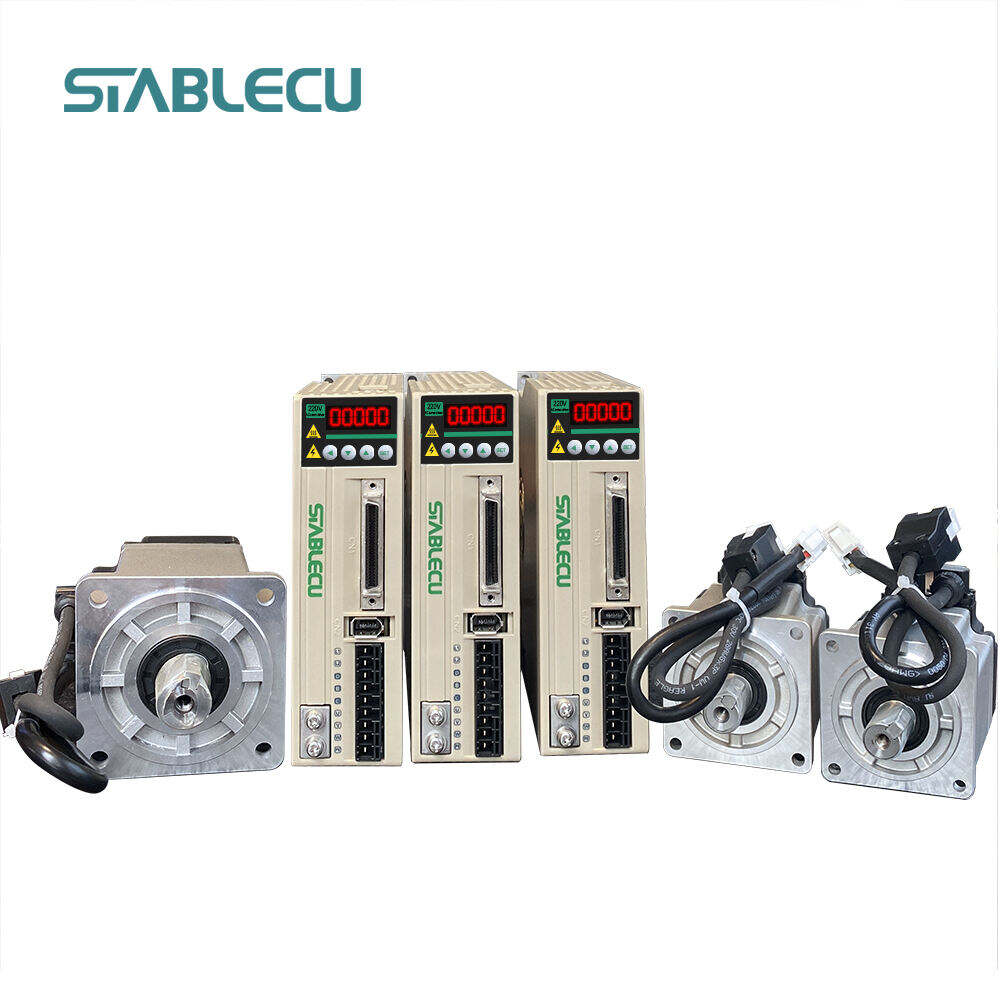Automation: The Precision and Versatility of Servo Motors
In the world of automated machinery and robotics, Servo Motors are indispensable. This little powerhouse provides very accurate control and high-output torque, making it invaluable in applications where accuracy and reliability are paramount.
A servo motor is a type of electromechanical device that changes electrical signals into angular or linear motion. It utilizes feedback to exactly respond to what is required by the input signal unlike general purpose motors that constantly rotate. These motors generally form closed-loop systems where feedback is utilized to control the exact position, speed and acceleration of the motor.
One important advantage of Servo Motors is their ability to hold torque at specific angles even without any continuous energy supply (called “holding torque”). It means that they are perfect for applications requiring precise positioning such as CNC machines, robotic arms, drones etc The mechanism remains static even when external loads are applied through holding torque thereby maintaining precision as well as stability.
Analogue and digital versions of servo motors come in different sizes. Positioning is done using analog servo motors which operate just like variable width pulses while digital servo motors operate based on digital signals thus being able to carry out more complex commands like those dealing with velocity or direction.
The use of Servo Motors cut across many industries. They aid in vehicle control systems including steering and braking systems leading to better safety standards as well as performance enhancement. Essentially in industrial automation, robots powered by these motors lead to high accuracy repetitive tasking improving efficiency and reducing labour costs. For fun lovers, you will find them in RC cars, planes helicopters for smooth response control.
However intricate they may be, it is ensured that the Servo Motors can be used by anyone. Some modern ones have already been equipped with microcontrollers which help in integrating them into existing systems easily; sensors are also included making it easier for users to detect faults within their machines early enough. There are high chances that most of them can work with popular software and hardware platforms without having to do any extra work.
To summarize it all, one would say that the Servo Motor is the unsung hero of precision engineering. Many industries from manufacturing to aerospace have been revolutionized by its ability to convert electrical signals into smooth controlled movements. In future with automated things happening globally, servo motors will continue growing into important components for developments in technology tomorrow.


 EN
EN
 AR
AR
 BG
BG
 HR
HR
 CS
CS
 DA
DA
 NL
NL
 FR
FR
 DE
DE
 EL
EL
 HI
HI
 IT
IT
 JA
JA
 KO
KO
 PL
PL
 PT
PT
 RO
RO
 RU
RU
 ES
ES
 SV
SV
 CA
CA
 TL
TL
 ID
ID
 SR
SR
 UK
UK
 VI
VI
 SQ
SQ
 HU
HU
 TH
TH
 TR
TR
 FA
FA
 AF
AF
 MS
MS
 KA
KA
 BN
BN
 LA
LA
 TA
TA
 KK
KK
 UZ
UZ
